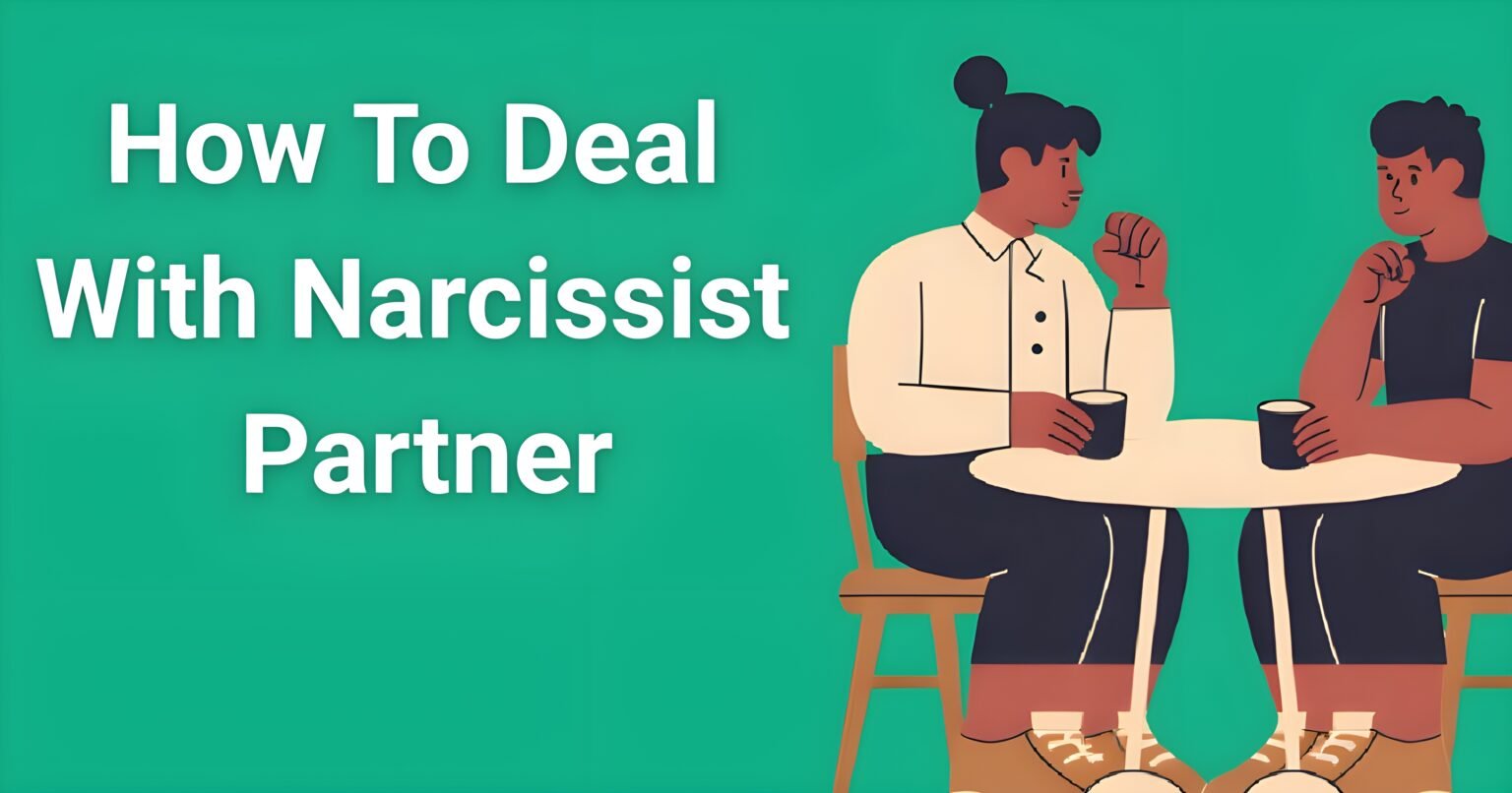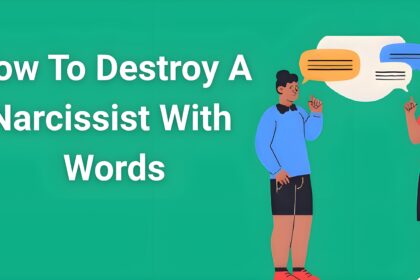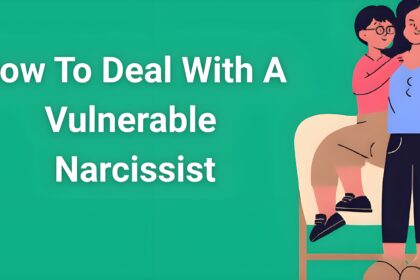Learning how to deal with narcissist partner behavior can feel overwhelming when you’re trapped in a cycle of confusion, manipulation, and emotional exhaustion. If you’re reading this, chances are you’ve already experienced the devastating effects of narcissistic abuse—the constant criticism, the gaslighting that makes you question your own reality, and the feeling that you’re walking on eggshells every single day.
- Understanding the Narcissistic Partner Dynamic
- The Hidden Patterns You Must Recognize
- 15 Essential Strategies: How to Deal With Narcissist Partner
- When the Relationship Becomes Too Dangerous to Manage
- The Reality of Staying vs. Leaving
- Breaking Free from Trauma Bonds
- Protecting Your Children in Narcissistic Households
- The Path to Healing and Recovery
- Building Your Future Beyond Narcissistic Abuse
- Frequently Asked Questions
- Conclusion: Your Path Forward Starts Now
- Chat controls
The harsh reality is that millions of people struggle with narcissistic partners, yet most don’t recognize the warning signs until significant damage has already occurred to their mental health, self-esteem, and overall wellbeing. Understanding how to deal with narcissist partner dynamics isn’t just about improving your relationship—it’s about protecting your sanity and potentially your life.
This comprehensive guide will equip you with evidence-based strategies, practical tools, and expert insights to help you navigate this challenging situation while protecting yourself from further psychological harm. Whether you’re trying to decide if your partner is truly narcissistic or you’re already certain and need survival tactics, this guide provides the roadmap you desperately need.
Understanding the Narcissistic Partner Dynamic
Before diving into how to deal with narcissist partner behavior, it’s crucial to understand what you’re truly facing. Narcissistic Personality Disorder (NPD) affects approximately 1-2% of the population, but narcissistic traits without the full disorder are much more common, affecting up to 6% of people.
When you’re learning how to deal with narcissist partner patterns, recognize that you’re not dealing with someone who simply has confidence issues or occasionally acts selfishly. Narcissistic partners operate from a fundamentally different psychological framework that prioritizes their needs, image, and control above everything else—including your emotional wellbeing.
The narcissistic partner typically displays a grandiose sense of self-importance, requires constant admiration, and lacks genuine empathy for others. However, these traits often hide behind a carefully constructed mask of charm, intelligence, and apparent sensitivity. This is why so many people find themselves asking, “How could someone so wonderful sometimes be so cruel?”
The Hidden Patterns You Must Recognize
Understanding how to deal with narcissist partner behavior requires recognizing the predictable patterns that emerge in these relationships. The narcissistic cycle typically follows three distinct phases that repeat endlessly, creating psychological trauma bonds that make leaving extremely difficult.
The Idealization Phase
During the initial stage, your narcissistic partner presented an almost too-good-to-be-true version of themselves. They showered you with attention, gifts, and promises of a perfect future together. This isn’t genuine love—it’s a calculated strategy called “love bombing” designed to create emotional dependency and lower your defenses.
The Devaluation Phase
Once they feel secure in their control over you, the mask begins to slip. The criticism starts subtly—perhaps disguised as “helpful suggestions” or “jokes”—before escalating into outright emotional abuse. They systematically chip away at your self-esteem, independence, and support systems.
The Discard Phase
When you begin to recognize their behavior or attempt to establish boundaries, they may threaten to leave, give you the silent treatment, or actually abandon you temporarily. This phase is designed to make you fight harder for their approval and convince you that you’re the problem.
15 Essential Strategies: How to Deal With Narcissist Partner
1. Document Everything to Combat Gaslighting
One of the most insidious aspects of learning how to deal with narcissist partner manipulation is countering their gaslighting tactics. Gaslighting involves systematically making you question your own memory, perceptions, and sanity.
Keep a private journal of incidents, conversations, and your emotional responses. Date each entry and be specific about what was said and done. This documentation serves two crucial purposes: it helps you maintain your grip on reality when they claim events never happened, and it provides evidence if you ever need to involve authorities or legal professionals.
Store this journal securely where your partner cannot access it—consider using a password-protected digital document or a physical journal hidden outside your home.
2. Master the Gray Rock Method
The Gray Rock method is a powerful technique for those learning how to deal with narcissist partner drama and emotional manipulation. This strategy involves making yourself as uninteresting and unresponsive as possible during interactions.
When your narcissistic partner tries to provoke you, respond with boring, factual statements. Instead of engaging emotionally with their criticism or accusations, reply with phrases like “I understand” or “That’s interesting.” Avoid sharing personal information, exciting news, or emotional reactions that could provide them with ammunition for future attacks.
This method works because narcissists feed off emotional reactions—both positive and negative. By becoming emotionally unavailable, you remove their primary source of narcissistic supply from the relationship.
3. Establish and Maintain Firm Boundaries
Learning how to deal with narcissist partner demands requires setting boundaries that you’re prepared to enforce consistently. Narcissistic partners are notorious boundary pushers who will test your limits constantly to maintain control.
Start with small, manageable boundaries and gradually expand them as you build confidence. For example, you might establish that certain topics are off-limits during dinner, that you won’t discuss relationship issues via text, or that you require 24-hour notice before social commitments.
The key to successful boundary setting is consistency and consequences. If you state a boundary but don’t enforce it when crossed, your narcissistic partner will learn that your boundaries are merely suggestions.
4. Stop Seeking Their Validation and Approval
One of the most challenging aspects of how to deal with narcissist partner relationships is breaking the addiction to their approval. Narcissistic partners are masters at intermittent reinforcement—occasionally providing just enough positive attention to keep you hoping for more.
Begin rebuilding your self-worth through activities and relationships outside your partnership. Reconnect with friends and family members your partner may have encouraged you to distance yourself from. Pursue hobbies, interests, and goals that bring you personal satisfaction regardless of your partner’s opinion.
Remember that someone with genuine love and respect for you wouldn’t require you to constantly earn their approval or affection.
5. Refuse to Play Their Manipulation Games
Narcissistic partners often employ specific manipulation tactics designed to maintain control and extract emotional reactions. Understanding how to deal with narcissist partner manipulation means recognizing these games and refusing to participate.
Common manipulation tactics include triangulation (bringing third parties into conflicts), silent treatment (withholding communication as punishment), and projection (accusing you of behaviors they’re guilty of). When you recognize these patterns, simply state your position once and refuse to engage further.
For instance, if they’re using the silent treatment, don’t chase after them begging for communication. Instead, use the quiet time to focus on your own activities and wellbeing.
6. Build a Secret Support Network
Isolation is a hallmark of abusive relationships, and narcissistic partners often systematically alienate their victims from potential sources of support. Learning how to deal with narcissist partner isolation requires carefully rebuilding your support system.
Start slowly and strategically. Reconnect with old friends through social media, join support groups (online if necessary for privacy), or develop relationships with people your partner doesn’t know. Be cautious about sharing too much too quickly, as some people may not understand the complexity of your situation.
Consider reaching out to professionals who specialize in narcissistic abuse. Sometimes having an expert confirm that what you’re experiencing is real and not normal can provide the validation needed to take protective action.
7. Protect Your Financial Independence
Financial abuse often accompanies emotional abuse in narcissistic relationships. Your partner may control bank accounts, prevent you from working, or create financial chaos to increase your dependence on them. Part of learning how to deal with narcissist partner control involves securing your financial autonomy.
If possible, establish a separate bank account that your partner doesn’t know about. Even small amounts of money saved over time can provide crucial emergency resources. Keep important documents like identification, bank statements, and insurance papers in a secure location outside your home.
If you’re currently unemployed or underemployed due to your partner’s influence, begin taking steps to improve your financial prospects. This might involve updating your resume, taking online courses, or networking within your professional field.
8. Learn to Communicate Strategically
When you must communicate with a narcissistic partner, strategic communication becomes essential. This isn’t about having deep, meaningful conversations—it’s about protecting yourself while conveying necessary information.
Keep communications brief, factual, and emotion-free. Use techniques like “information diet” where you share as little personal information as possible. When they try to draw you into arguments or emotional discussions, redirect the conversation back to practical matters or simply state that you’re not available to discuss the topic at that time.
Written communication (texts, emails) can be particularly useful because it provides a record of what was actually said and prevents them from later claiming the conversation went differently.
9. Prioritize Your Mental and Physical Health
The stress of living with a narcissistic partner takes a severe toll on both mental and physical health. Learning how to deal with narcissist partner stress requires actively prioritizing your wellbeing, even if your partner discourages or sabotages these efforts.
Establish routines that promote your health and stick to them regardless of your partner’s mood or demands. This might include regular exercise, meditation, therapy appointments, or social activities that bring you joy and peace.
Pay attention to stress-related symptoms like sleep disturbances, changes in appetite, anxiety, or depression. These are normal responses to an abnormal situation, but they require attention and care.
10. Understand Trauma Bonding and Its Effects
One of the most confusing aspects of narcissistic relationships is the intense emotional attachment that develops despite the abuse. This phenomenon, called trauma bonding, occurs when cycles of abuse and affection create neurological patterns similar to addiction.
Recognizing that your attachment to your narcissistic partner may be the result of psychological conditioning—not genuine love—is crucial for healing and making clear decisions about your future. The intensity of your feelings doesn’t validate the relationship; it often indicates the depth of the psychological manipulation you’ve experienced.
Trauma bonds can be broken, but it typically requires specialized approaches that address both the emotional and neurological aspects of the attachment. Traditional willpower-based methods rarely work because trauma bonds function like addiction in the brain.
11. Develop Safety Plans for Escalation
Learning how to deal with narcissist partner anger and potential escalation requires serious safety planning. While not all narcissistic partners become physically violent, the emotional and psychological abuse can escalate unpredictably, and research shows connections between narcissistic traits and various forms of abuse.
Create multiple safety plans for different scenarios. Know where you could go if you needed to leave quickly, keep emergency funds accessible, and identify people who would help you without asking too many questions. Have important documents and emergency supplies readily available.
Trust your instincts about danger. If your partner’s behavior is escalating or they’re making threats, take these seriously and consider involving law enforcement or domestic violence resources.
12. Stop Trying to Fix or Change Them
Perhaps the hardest lesson in how to deal with narcissist partner relationships is accepting that you cannot fix, heal, or change them. Many partners of narcissists spend years believing that if they just love enough, understand enough, or sacrifice enough, their partner will change.
Narcissistic Personality Disorder and narcissistic traits are deeply ingrained patterns that resist change, even with professional intervention. The few narcissists who do improve typically only do so after facing serious consequences and engaging in years of intensive therapy—and only if they genuinely want to change.
Your energy is better spent protecting yourself and healing from the damage already done rather than continuing to invest in someone who has repeatedly demonstrated they will harm you.
13. Recognize When Professional Help Is Essential
There comes a point where learning how to deal with narcissist partner situations requires professional intervention. A therapist specializing in narcissistic abuse can help you understand the dynamics you’re experiencing, validate your reality, and develop personalized strategies for your situation.
Individual therapy is generally more beneficial than couples therapy when dealing with a narcissistic partner. Couples therapy can actually be dangerous in abusive relationships because it may provide the narcissist with more ammunition for manipulation.
Sometimes getting an expert analysis of your specific situation can provide the clarity needed to make informed decisions about your relationship and future. When you’re constantly being told that your perceptions are wrong, having a professional confirm what you’re experiencing can be life-changing.
14. Create Your Exit Strategy (Even If You’re Not Ready to Use It)
Even if you’re not ready to leave your narcissistic partner, having an exit strategy provides psychological comfort and practical preparation. This plan should include financial resources, housing options, legal considerations, and emotional support systems.
Research local resources for domestic violence survivors, even if you don’t consider your situation “that serious.” Many of these organizations provide services and information that can be valuable regardless of whether you ultimately choose to leave.
Having a plan doesn’t mean you have to use it immediately, but it ensures you have options when and if you’re ready to prioritize your safety and wellbeing above the relationship.
15. Focus on Recovery and Rebuilding Your Identity
The final strategy for how to deal with narcissist partner relationships involves focusing on recovering your sense of self and rebuilding your identity outside of the relationship. Narcissistic abuse often results in victims losing touch with their own preferences, goals, and values.
Begin reconnecting with who you were before this relationship and who you want to become moving forward. This might involve revisiting old interests, setting personal goals, or exploring new aspects of yourself that were suppressed during the relationship.
Recovery from narcissistic abuse is a process that takes time, patience, and often professional support. Be gentle with yourself as you heal and remember that your worth isn’t determined by your ability to maintain a relationship with someone who consistently harms you.
When the Relationship Becomes Too Dangerous to Manage
While many people successfully learn how to deal with narcissist partner behavior for extended periods, there are situations where the relationship becomes too dangerous to manage safely. Recognizing these red lines can literally save your life.
Immediate safety concerns include any threats of violence, actual physical abuse, threats against children, stalking behavior, or escalating control tactics like preventing you from leaving the house or accessing money. If your partner is monitoring your communications, isolating you completely from support systems, or showing signs of extreme jealousy or paranoia, the situation may be beyond personal management strategies.
Financial abuse that leaves you unable to meet basic needs, sexual coercion or assault, and threats of suicide or self-harm as manipulation tactics are also indicators that professional intervention is necessary immediately.
The Reality of Staying vs. Leaving
The decision of whether to stay and manage the relationship or leave entirely is deeply personal and complex. Many factors influence this choice, including children, financial dependence, safety concerns, and the severity of the narcissistic behavior.
If you choose to stay, understand that the strategies outlined in this guide are designed to help you protect your mental health and maintain your sense of self, but they won’t fundamentally change your partner or create the healthy relationship you deserve. These are survival tactics, not relationship improvement methods.
If you’re considering leaving but feel trapped by various circumstances, know that resources exist to help you navigate these challenges. You don’t have to figure it out alone, and your situation—no matter how complicated—is not hopeless.
Breaking Free from Trauma Bonds
One of the biggest obstacles people face when learning how to deal with narcissist partner relationships is the powerful psychological attachment created by trauma bonding. This addiction-like attachment makes leaving feel impossible, even when you intellectually understand that the relationship is harmful.
Trauma bonds form when cycles of abuse and affection create neurological patterns that literally change your brain chemistry. The intermittent reinforcement of good moments mixed with abuse creates the same psychological effects as gambling addiction or drug dependency.
Breaking these bonds requires more than willpower—it requires understanding how trauma bonds function in the brain and using specific techniques designed to rewire these neural pathways. This process typically takes time and specialized support, but it is absolutely possible to break free from these psychological chains.
Protecting Your Children in Narcissistic Households
If you have children with a narcissistic partner, learning how to deal with narcissist partner behavior becomes even more complex and urgent. Children in narcissistic households often suffer long-term psychological damage from witnessing the abuse cycle and may become direct targets of manipulation or abuse themselves.
Narcissistic parents often use children as pawns in their psychological games, creating loyalty conflicts, sharing inappropriate information, or using them to monitor and control the other parent. They may also alternate between treating children as extensions of themselves (praising them when they reflect well on the parent) and rejecting them when they display independence.
Protecting your children while dealing with a narcissistic partner requires careful strategy. Document any concerning behavior toward the children, maintain your own mental health so you can provide stability, and consider involving child protection professionals if the situation becomes dangerous.
The Path to Healing and Recovery
Recovery from narcissistic abuse is possible, but it requires acknowledgment that the healing process extends far beyond simply ending the relationship. The psychological damage from narcissistic abuse can include complex PTSD, depression, anxiety, and difficulty trusting your own judgment.
Healing typically involves several phases: recognizing and accepting what happened, processing the trauma and grief, rebuilding your sense of self, and creating healthy boundaries for future relationships. This process is rarely linear—expect setbacks and be patient with yourself.
Professional support is often essential for complete recovery. Therapists specializing in trauma and narcissistic abuse understand the unique challenges survivors face and can provide specific tools and techniques for healing.
Building Your Future Beyond Narcissistic Abuse
As you implement these strategies for how to deal with narcissist partner behavior, remember that your ultimate goal should be creating a life where such tactics are unnecessary. Whether that means successfully managing the relationship long-term or eventually choosing to leave, you deserve a life free from constant manipulation, criticism, and emotional abuse.
Start envisioning what your life could look like without the constant stress of walking on eggshells. Imagine making decisions based on your own values rather than fear of someone’s reaction. Picture relationships built on mutual respect, genuine care, and healthy communication.
This vision of your future can provide motivation during difficult moments and remind you why protecting yourself is worth the effort and potential challenges involved.
Frequently Asked Questions
Q: Can a narcissistic partner ever change? A: While personality change is theoretically possible, it’s extremely rare and requires the narcissist to genuinely acknowledge their behavior, commit to intensive long-term therapy, and consistently demonstrate change over years. Most experts advise against staying in a relationship hoping for change.
Q: How do I know if my partner is actually narcissistic or just going through a difficult time? A: Narcissistic behavior is characterized by consistent patterns over time, lack of genuine empathy, inability to accept responsibility, and systematic manipulation. Temporary stress or difficulties don’t typically involve the calculated manipulation and emotional abuse seen in narcissistic relationships.
Q: Is it possible to co-parent effectively with a narcissistic ex-partner? A: Co-parenting with a narcissist requires strict boundaries, documentation of all interactions, and focus on the children’s wellbeing rather than trying to have a cooperative relationship with your ex. Many people find parallel parenting (minimal communication) works better than traditional co-parenting approaches.
Q: Why do I feel so attached to someone who treats me badly? A: This is likely the result of trauma bonding, where cycles of abuse and affection create neurological patterns similar to addiction. The attachment is a psychological response to manipulation, not evidence of genuine love or compatibility.
Q: Should I tell my narcissistic partner that I think they’re narcissistic? A: Generally, no. Narcissists typically respond to such labels with increased manipulation, rage, or retaliation. Focus on protecting yourself rather than trying to create insight in someone who lacks the capacity for genuine self-reflection.
Q: How can I rebuild my self-esteem after narcissistic abuse? A: Rebuilding self-esteem takes time and often requires professional support. Focus on reconnecting with your values, interests, and goals independent of your partner’s opinions. Seek therapy, rebuild your support network, and practice self-compassion as you heal.
Your journey toward understanding how to deal with narcissist partner behavior is really a journey toward reclaiming your power, protecting your wellbeing, and creating the life you deserve. Remember that seeking help isn’t weakness—it’s wisdom. You don’t have to navigate this challenging situation alone, and with the right strategies and support, you can protect yourself while making informed decisions about your future.
Conclusion: Your Path Forward Starts Now
Learning how to deal with narcissist partner relationships represents one of the most challenging psychological situations you may ever face, but understanding these dynamics is the first crucial step toward protecting yourself and reclaiming your life. Throughout this comprehensive guide, we’ve explored fifteen evidence-based strategies that can help you navigate this complex terrain while preserving your mental health and sense of self.
The most important insight to carry forward is that your confusion, exhaustion, and emotional turmoil are not signs of weakness or inadequacy—they are normal responses to abnormal treatment. When someone systematically undermines your reality through gaslighting, manipulates your emotions through calculated cycles of affection and abuse, and erodes your self-worth through constant criticism, feeling overwhelmed is the expected human response.
Remember that implementing these strategies for how to deal with narcissist partner behavior is not about fixing your relationship or changing your partner. These techniques are survival tools designed to protect your psychological wellbeing while you determine the best path forward for your unique situation. Some people use these strategies to maintain their safety while planning an eventual exit, others apply them to establish firmer boundaries within ongoing relationships, and still others find that understanding these dynamics helps them recognize when professional intervention becomes necessary.
The journey of recovery and healing extends far beyond simply learning coping mechanisms. If you’ve recognized yourself in the patterns described throughout this guide, you may be dealing with trauma bonding, complex emotional attachments, and psychological conditioning that requires specialized approaches to address effectively. The intensity of your feelings toward someone who harms you doesn’t indicate genuine love—it often reflects the depth of psychological manipulation you’ve experienced.
Breaking free from these patterns requires more than willpower and good intentions. When your brain has been rewired through cycles of manipulation and intermittent reinforcement, traditional relationship advice and generic therapy approaches often fall short of addressing the neurological reality of trauma bonds. This is why seeking specialized support from professionals who understand narcissistic abuse dynamics can make the difference between continued confusion and genuine clarity about your situation.
Your safety—both emotional and physical—must remain the top priority as you move forward. Trust your instincts when they tell you something feels wrong, even if others around you don’t understand the subtle nature of psychological abuse. Document concerning incidents, maintain connections with supportive people outside the relationship, and remember that escalation can happen unpredictably in these situations.
Most importantly, hold onto hope for your future. Thousands of people have successfully navigated similar situations and gone on to build healthy, fulfilling relationships and lives. The skills you’re developing now—recognizing manipulation, setting boundaries, protecting your mental health, and trusting your own perceptions—will serve you well in all future relationships and life situations.
Your story doesn’t end with learning how to deal with narcissist partner behavior. It begins with understanding these dynamics well enough to make informed decisions about what kind of life you want to create moving forward. Whether that involves transforming your current relationship through firm boundaries, planning a safe exit strategy, or seeking professional guidance to navigate complex circumstances, you now have the knowledge and tools to protect yourself throughout the process.
The path ahead may feel uncertain, but you’re no longer walking it blind. Armed with understanding, practical strategies, and the knowledge that your experiences are valid, you can begin making choices that prioritize your wellbeing and create the foundation for a healthier, happier future. Your life has value, your feelings matter, and you deserve relationships built on mutual respect, genuine care, and emotional safety.
Take the first step today, whatever that looks like for your situation. Your future self will thank you for having the courage to prioritize your own wellbeing and seek the support you deserve.
Chat controls
Sonnet 4






